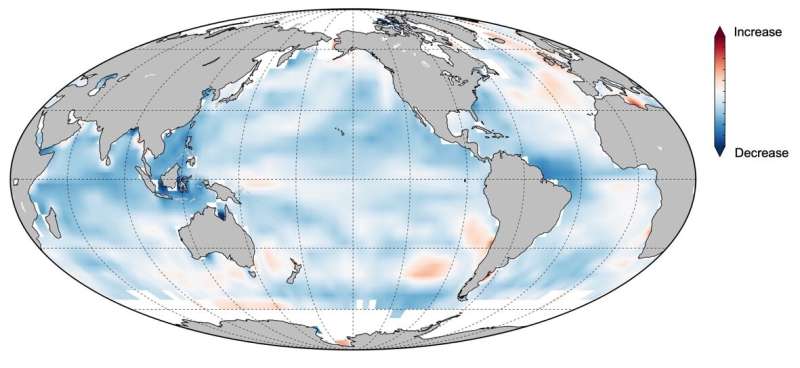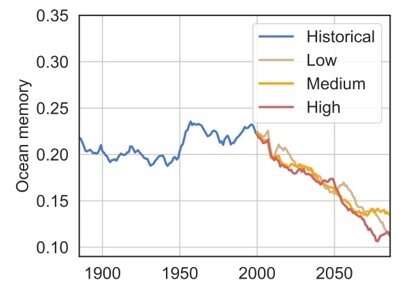
A recent study published in Science Advances found that most of the world's ocean is losing its year-to-year memory under global warming.
The ocean temperature tomorrow is likely to be the same as it is today, with only slight changes, because of the strong persistence of the slowly varying ocean. Predicting ocean conditions is often done with ocean memory.
Climate models show a decline in ocean memory. As greenhouse-gas concentrations continue to rise, memory decline will become more evident.
The similarity in ocean surface temperature from one year to the next is a simple metric for ocean memory, according to the lead author and researcher at the Farallon Institute.
Ocean memory is related to the thickness of the ocean's uppermost layer. More thermal inertia is translated into memory when the layers are deeper. The decline in ocean memory will be caused by continued warming in the mixed layer over most oceans.
Other processes, such as changes in ocean currents and changes in the energy exchange between the atmosphere and ocean, also contribute to changes in ocean memory.

The thinning mixed layer increases the random fluctuations of the sea surface temperature. The ocean won't change much from one year to the next in the future, but the fraction of helpful signals for prediction will decrease.
"Reduced ocean memory together with increased random fluctuations suggest changes in the system and new challenges in prediction under warming," said Fei-Fei Jin, an atmospheric sciences professor at the University of Hawai'i.
Ocean memory loss affects the prediction of physical variables, but could also affect the way we manage sensitive marine environments.
Less time in advance is needed for a forecast to be made. Michael Jacox, a research scientist at the Southwest Fisheries Science Center in Monterey, California, said that this could affect our ability to predict and prepare for ocean change.
The biological parameters used for stock assessment are assumed to be stable. Reduced ocean memory might render estimation inaccurate and calls for new approaches to include real-time ocean monitoring and other efforts alike. Populations of biological resources are likely to be impacted by ocean memory decline. Future changes in the population of a species can be better estimated and predicted by taking ocean memory loss into account.
Predicting land-based impacts on temperature, precipitation, and extreme events might be affected by ocean memory decline due to their dependence on sea surface temperature as a predictability source. Researchers will be challenged to find alternative predictors as ocean memory continues to decline.
More information: Hui Shi et al, Global decline in ocean memory over the 21st century, Science Advances (2022). DOI: 10.1126/sciadv.abm3468. www.science.org/doi/10.1126/sciadv.abm3468 Journal information: Science Advances Citation: World's ocean is losing its memory under global warming (2022, May 6) retrieved 6 May 2022 from https://phys.org/news/2022-05-world-ocean-memory-global.html This document is subject to copyright. Apart from any fair dealing for the purpose of private study or research, no part may be reproduced without the written permission. The content is provided for information purposes only.